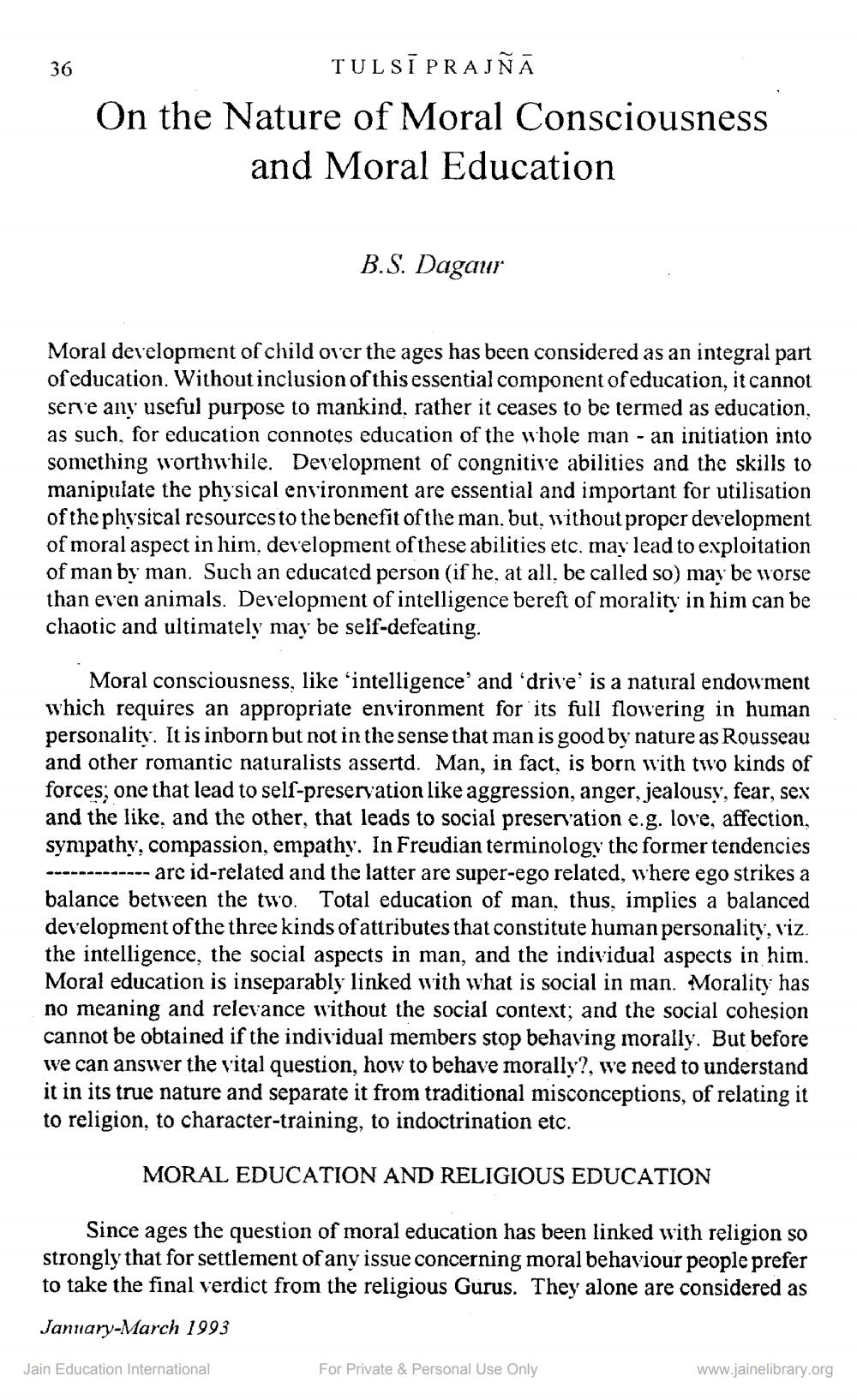________________
36
TULSI PRAJÑA On the Nature of Moral Consciousness
and Moral Education
B.S. Dagaur
Moral development of child over the ages has been considered as an integral part of education. Without inclusion ofthis essential component of education, it cannot serve any useful purpose to mankind, rather it ceases to be termed as education, as such, for education connotes education of the whole man - an initiation into something worthwhile. Development of congnitive abilities and the skills to manipulate the physical environment are essential and important for utilisation of the physical resources to the benefit of the man, but, without proper development of moral aspect in him. development of these abilities etc. may lead to exploitation of man by man. Such an educated person (if he, at all, be called so) may be worse than even animals. Development of intelligence bereft of morality in him can be chaotic and ultimately may be self-defeating.
Moral consciousness, like 'intelligence and 'drive' is a natural endowment which requires an appropriate environment for its full flowering in human personality. It is inborn but not in the sense that man is good by nature as Rousseau and other romantic naturalists assertd. Man, in fact, is born with two kinds of forces; one that lead to self-preservation like aggression, anger, jealousy, fear, sex and the like, and the other, that leads to social preservation e.g. love, affection, sympathy, compassion, empathy. In Freudian terminology the former tendencies ------------- arc id-related and the latter are super-ego related, where ego strikes a balance between the two. Total education of man, thus, implies a balanced development of the three kinds of attributes that constitute human personality, viz. the intelligence, the social aspects in man, and the individual aspects in him. Moral education is inseparably linked with what is social in man. Morality has no meaning and relevance without the social context; and the social cohesion cannot be obtained if the individual members stop behaving morally. But before we can answer the vital question, how to behave morally?, we need to understand
ature and separate it from traditional misconceptions, of relating it to religion, to character-training, to indoctrination etc.
MORAL EDUCATION AND RELIGIOUS EDUCATION
Since ages the question of moral education has been linked with religion so strongly that for settlement of any issue concerning moral behaviour people prefer to take the final verdict from the religious Gurus. They alone are considered as
January-March 1993
Jain Education International
For Private & Personal Use Only
www.jainelibrary.org




